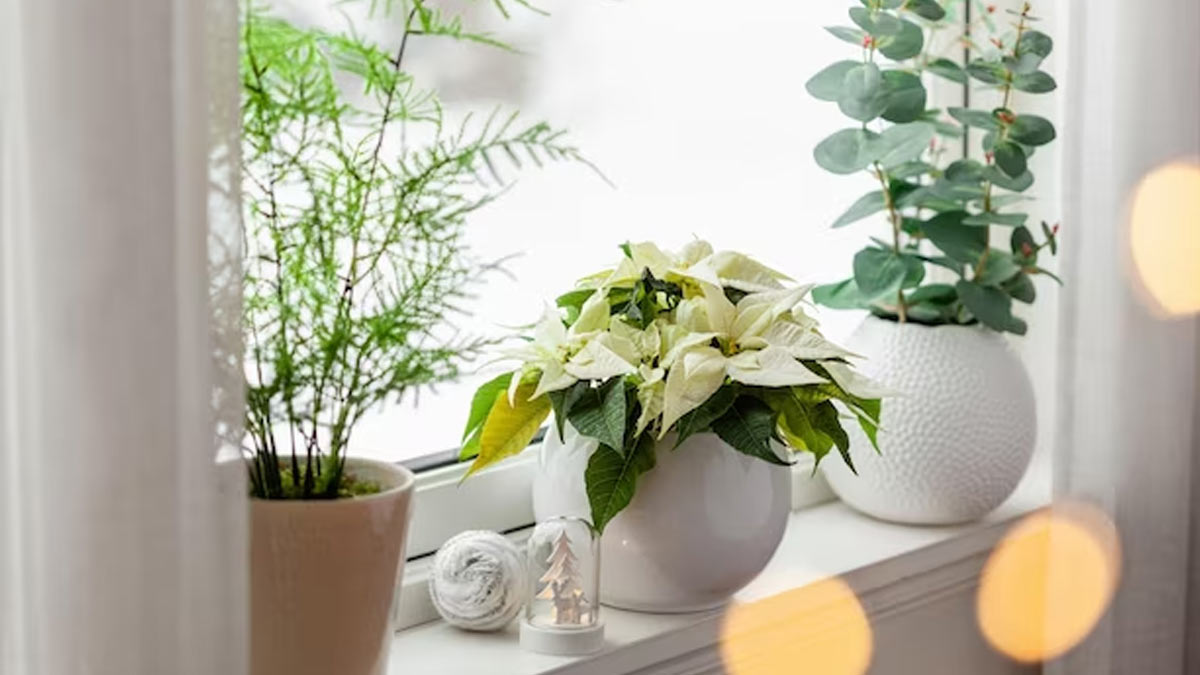
As the winter season approaches, many indoor plant enthusiasts may worry about how to keep their lovely indoor plants healthy and thriving during the colder months. While winter can present challenges for indoor plants, with proper care and attention, you can ensure your plants continue to thrive indoors. In this article, we'll tell you about some ways to take care of indoor plants in the winter season, take a look:

In winter, indoor plants may not need as much water as they do during the warmer months. Overwatering during winter can lead to root rot, as the soil takes longer to dry out in colder temperatures. To avoid overwatering, check the soil moisture level before watering. If the top inch of soil is dry, it's time to water your indoor plants. Plants have different needs when it comes to watering, but in the winter season, most indoor plants need less water.
Our houses can often be too hot and dry for plants to survive in, and winter heating only dries the air. Winter air is drier than summer air, which can cause indoor plants to lose moisture through transpiration. To prevent this, you can increase the humidity around your plants. One way to do this is by placing a tray of water near your plants, which will release moisture into the air as it evaporates.

Winter days are shorter, which means less sunlight for your indoor plants. To compensate for this, you can move your plants closer to a sunny window or use grow lights to provide them with the light they need.
Fertiliser gives extra nutrients, but your plants won't benefit from them in the winter since they are doing everything at a much slower speed. Till spring, give your plants a rest. You can fertilise your plant at half-strength or less if you're cultivating it specifically and giving it enough light. (Kitchen Scraps That You Should Save For Your Home Garden)
Don't miss: Low Maintenance Plants That Are Perfect For Your Office Desk

It is important to keep your indoor plants clean as dust buildup on the leaves can block their pores and attract bugs. Winter is a good time to prune your indoor plants and remove any dead or diseased leaves. This will help your plants conserve energy and prevent the spread of diseases. You can clean the leaves of your plants with a damp cloth to remove any dust or debris that may be hindering photosynthesis. Pluck the lower stems of the plant to get rid of any fading or damaged leaves.
Don't miss: Beginner-Friendly Flowering Plants To Grow Indoors
Repotting is not a problem for actively developing plants. For this reason, repotting houseplants is best done in the spring and summer. therefore avoid repotting houseplants since it may disturb dormant or resting houseplants; instead, consider sowing some new seeds.
For more such stories, stay tuned to HerZindagi.
Image credit: Freepik
Also watch this video
Herzindagi video
Our aim is to provide accurate, safe and expert verified information through our articles and social media handles. The remedies, advice and tips mentioned here are for general information only. Please consult your expert before trying any kind of health, beauty, life hacks or astrology related tips. For any feedback or complaint, contact us at [email protected].